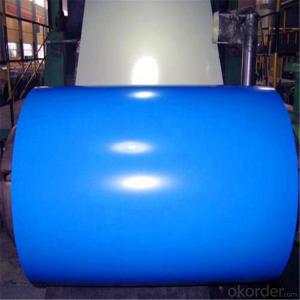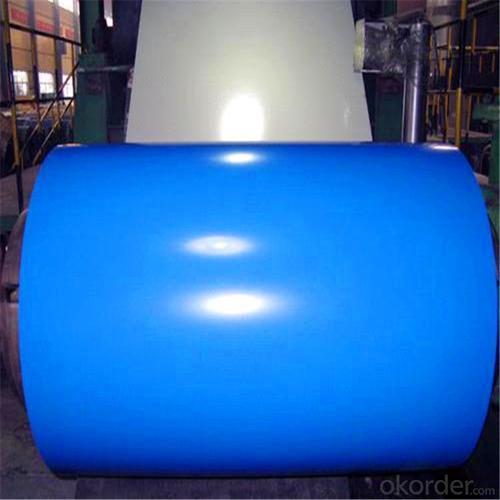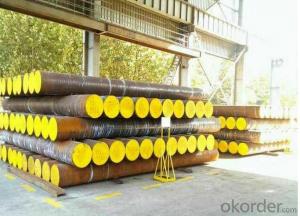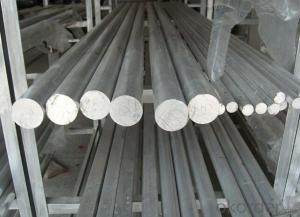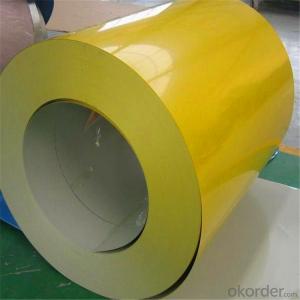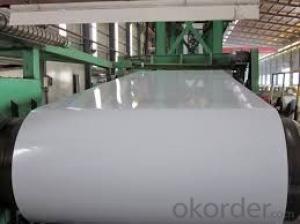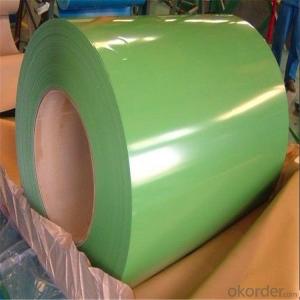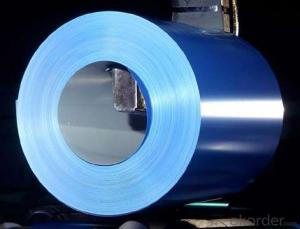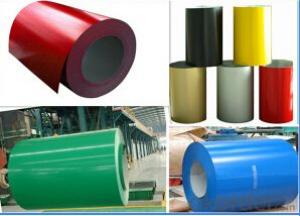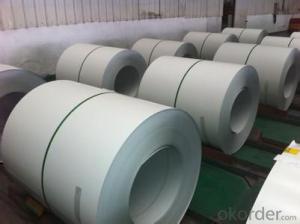Good Quality Prepainted Galvanized Steel PPGI Steel Coil
- Loading Port:
- Tianjin
- Payment Terms:
- TT OR LC
- Min Order Qty:
- 100 m.t.
- Supply Capability:
- 500000 m.t./month
OKorder Service Pledge
OKorder Financial Service
You Might Also Like
Specification
Prepainted Galvanized Steel Coil Z275 PPGI Metal Roofing Sheets Building Materials
Description of Prepainted Galvanized Steel Coil Z275
Product | PPGI/PPGL |
Capacity | 5,000 tons/month |
Base material | Hot dipped galvanized steel |
Thickness | 0.2-2.0mm |
Width | 600-1250mm(according to your need) |
Coil Weight | 3-6tons |
Quality | SGCC, DX51D |
Color | RAL No. or customers samples’ color |
Zinc-coating | 30g/m2-180g/m2 |
Coil ID | 508mm/610mm |
Technique | Cold rolled—hot dipped galvanized—color coated |
Painting | Top painting:15~25μm |
Back painting: 6~10μm | |
Tolerance | Thickness: +/-0.02mm |
Width:+/-2mm | |
Shipment time | within 15-45 workdays |
Payment | T/T, L/C at sight |
Packing | Standard export packing |
The special order can be negotiated. | |
Application of Prepainted Galvanized Steel Coil Z275
APPLICATION OF OUR PREPAINTED STEEL | ||||||||||
Construction | Outside | Workshop,agricultural warehouse,residential precast unit | ||||||||
corrugated roof,roller shutter door,rainwater drainage pipe,retailer booth | ||||||||||
Inside | Door,doorcase,light steel roof stucture,folding screen,elevator,stairway,ven gutter,Construction Wall | |||||||||
Electrical applicance | Refrigerator,washer,switch cabnet,instrument cabinet,air conditioning,micro-wave owen,bread maker | |||||||||
Fuiniture | Central heating slice,lampshade,chifforobe,desk,bed,locker,bookself | |||||||||
Carrying trade | Exterior decoration of auto and train,clapboard,container,isolation lairage,isolation board | |||||||||
Qthers | Writing panel,garbagecan,billboard,timekeeper,typewriter,instrument panel,weight sensor,photographic equipment | |||||||||
Products Show of Prepainted Galvanized Steel Coil Z275

Product Advantages
1.With nearly 20 years experience in prepainted steel, accommodate different marketdemands. | ||||||||||||||
2.'Quality first, service first' is our business aim; 'The good faith get respect,cast quality market' is our Business philosophy . | ||||||||||||||
3.Having two series producttion line,with the abbual production capacity of 240000 tons. | ||||||||||||||
4.Exceed International ISO9001:2008&ISO14001:2004 quality and environmental standards | ||||||||||||||
5.Meet with ROHS standard |
Company Information
CNBM International Corporation is the most important trading platform of CNBM group.
Whith its advantages, CNBM International are mainly concentrate on Cement, Glass, Iron and Steel, Ceramics industries and devotes herself for supplying high qulity series of refractories as well as technical consultancies and logistics solutions.


F A Q
1, Your advantages?
professional products inquiry, products knowledge train (for agents), smooth goods delivery, excellent customer solution proposale
2, Test & Certificate?
SGS test is available, customer inspection before shipping is welcome, third party inspection is no problem
3, Factory or Trading Company?
CNBM is a trading company but we have so many protocol factories and CNBM works as a trading department of these factories. Also CNBM is the holding company of many factories.
4, Payment Terms?
30% TT as deposit and 70% before delivery.
Irrevocable L/C at sight.
5, Trading Terms?
EXW, FOB, CIF, FFR, CNF
6, After-sale Service?
CNBM provides the services and support you need for every step of our cooperation. We're the business partner you can trust.
For any problem, please kindly contact us at any your convenient time.
We'll reply you in our first priority within 24 hours.
- Q: How does special steel perform in high-pressure environments?
- Special steel performs exceptionally well in high-pressure environments due to its unique composition and properties. It is designed to withstand extreme pressure and temperature conditions without deforming or losing its structural integrity. The high tensile strength and hardness of special steel enable it to resist the forces exerted by high pressures, making it an ideal material for applications such as oil and gas pipelines, pressure vessels, and hydraulic systems. Additionally, special steel's excellent corrosion resistance ensures its durability and longevity in aggressive environments, further enhancing its performance in high-pressure settings.
- Q: How does free-cutting steel improve machinability?
- Free-cutting steel improves machinability by having a higher sulfur content, which acts as a lubricant during the machining process. This reduces friction and heat generation, leading to improved chip formation and easier cutting, resulting in higher cutting speeds, improved surface finish, and extended tool life.
- Q: How does special steel withstand high temperatures?
- Special steel is able to withstand high temperatures due to its unique composition and manufacturing process. Firstly, special steel is made from alloys that contain elements such as chromium, nickel, and molybdenum, which provide increased resistance to heat. These elements form a protective oxide layer on the surface of the steel, preventing oxidation and corrosion at high temperatures. Furthermore, special steel goes through specific heat treatment processes, such as quenching and tempering, which enhance its strength and toughness. These processes involve heating the steel to high temperatures and then rapidly cooling it, followed by reheating and slow cooling. This controlled cooling and heating process modifies the steel's microstructure, making it more resistant to thermal stress and deformation. Additionally, special steel is often designed to have a high melting point, which allows it to maintain its structural integrity even in extreme temperatures. The specific combination of elements and their ratios in the alloy contribute to the steel's ability to resist softening or melting when exposed to high heat. Moreover, special steel may also incorporate specialized coatings or treatments that further enhance its thermal resistance. These coatings can provide an extra layer of protection against heat, oxidation, and corrosion, making the steel even more durable and long-lasting in high-temperature environments. In summary, special steel withstands high temperatures by virtue of its unique alloy composition, heat treatment processes, high melting point, and additional protective coatings. These factors work together to enhance the steel's ability to resist thermal stress, deformation, oxidation, and corrosion, making it a reliable and durable material for applications in extreme heat conditions.
- Q: How does special steel contribute to the automotive noise reduction?
- Special steel contributes to automotive noise reduction in several ways. Firstly, it is durable and strong, allowing for the construction of thinner and lighter components. This reduces the overall weight of the vehicle, resulting in reduced road and engine noise. Additionally, special steel has excellent vibration-damping properties, which helps absorb and minimize noise generated by the engine, suspension, and other moving parts. The use of special steel in the design of automotive structures and panels also helps reduce noise transmission from the outside environment into the cabin, providing a quieter and more comfortable driving experience for passengers.
- Q: What are the different methods of improving the fatigue resistance of special steel?
- There are several methods that can be employed to improve the fatigue resistance of special steel. These methods aim to enhance the material's ability to withstand cyclic loading and prevent fatigue failure. 1. Heat Treatment: One common method is to subject the special steel to heat treatment processes such as annealing, normalizing, or quenching and tempering. These treatments can alter the microstructure of the steel, improving its strength, toughness, and fatigue resistance. 2. Surface Treatment: Applying surface treatments like shot peening or surface hardening can significantly enhance the fatigue resistance of special steel. Shot peening involves bombarding the surface with small, high-velocity steel shots, inducing compressive stresses that counteract the tensile stresses during cyclic loading. Surface hardening techniques, such as carburizing or nitriding, create a hardened layer on the surface of the steel, which increases its resistance to fatigue. 3. Alloying: Modifying the composition of the special steel by adding specific alloying elements can greatly enhance its fatigue resistance. For example, adding elements like chromium, molybdenum, or nickel can improve the material's strength, ductility, and resistance to fatigue crack initiation and propagation. 4. Grain Refinement: Refining the grain structure of the special steel can lead to improved fatigue resistance. Techniques like severe plastic deformation or grain refinement through thermomechanical processing can promote the formation of finer grains, which reduce the susceptibility to fatigue crack initiation and propagation. 5. Microstructural Control: Optimizing the microstructure of the special steel can be achieved through techniques such as controlled rolling, controlled cooling, or precipitation hardening. These methods aim to achieve a desirable microstructural balance, such as fine dispersion of precipitates or a refined grain structure, which improves the material's fatigue resistance. 6. Residual Stress Control: Managing residual stresses within the special steel can help improve its fatigue resistance. Techniques like stress relieving or balancing residual stresses through appropriate heat treatment can reduce the likelihood of fatigue crack initiation and propagation. It is important to note that the specific method or combination of methods employed to enhance fatigue resistance will depend on the specific alloy and application requirements. Additionally, thorough testing and evaluation should be conducted to ensure the effectiveness of these methods in improving the fatigue resistance of special steel.
- Q: How does molybdenum improve the performance of special steel?
- Due to its unique properties and characteristics, molybdenum is crucial in enhancing the performance of special steel. Its role is multi-faceted and includes improving strength and toughness, increasing hardenability, enhancing corrosion resistance, and improving high-temperature strength and creep resistance. One of the primary benefits of molybdenum is its ability to significantly improve the strength and toughness of steel, making it more durable and resistant to deformation. This is achieved by forming a solid solution with iron, resulting in a fine-grained microstructure and reducing the formation of brittle phases in the steel. Another advantage of molybdenum is its impact on the hardenability of steel. It allows the steel to be heat-treated to achieve the desired mechanical properties. This is particularly important in the production of special steel, where high strength, wear resistance, and thermal stability are often required. By enabling effective heat treatment, molybdenum ensures that the steel can be processed to meet specific performance requirements, such as hardness, toughness, and dimensional stability. Moreover, molybdenum enhances the corrosion resistance of special steel, making it suitable for challenging environments. It forms a protective oxide layer on the steel's surface, acting as a barrier against corrosive substances like acids, alkalis, and salts. This corrosion resistance is crucial in applications where the steel is exposed to harsh conditions, such as marine environments, chemical processing plants, and oil and gas industries. Furthermore, molybdenum improves the high-temperature strength and creep resistance of special steel. It enables the steel to maintain its mechanical properties even at elevated temperatures, making it suitable for applications where the steel is subject to prolonged exposure to heat or mechanical stress. In conclusion, molybdenum plays a vital role in enhancing the performance of special steel by improving its strength, toughness, hardenability, corrosion resistance, and high-temperature properties. These attributes make molybdenum an essential alloying element in the production of special steel for various industries, including automotive, aerospace, energy, and tool manufacturing.
- Q: What are the common alloying elements in special steel?
- The common alloying elements in special steel are chromium, manganese, molybdenum, nickel, and vanadium.
- Q: How does tool steel maintain its hardness at high temperatures?
- Tool steel maintains its hardness at high temperatures due to its high carbon content and alloying elements. The high carbon content allows for the formation of carbides, which are extremely hard and stable even at elevated temperatures. Additionally, the alloying elements in tool steel, such as chromium, tungsten, and molybdenum, form secondary carbides that further enhance the steel's hardness and heat resistance. These carbides act as strengthening agents, preventing the steel from losing its hardness and maintaining its performance even under high-temperature conditions.
- Q: How does special steel perform in terms of hardness?
- Special steel performs exceptionally well in terms of hardness. Due to its unique alloy composition and precise manufacturing process, it exhibits superior hardness compared to conventional steel. This enhanced hardness allows special steel to withstand high pressures, resist wear and tear, and provide excellent performance in demanding applications across various industries.
- Q: What are the requirements for special steel used in wind turbines?
- The requirements for special steel used in wind turbines typically include high strength and durability, resistance to corrosion and fatigue, excellent weldability, and good magnetic properties. Additionally, the steel should possess good formability and machinability to aid in the manufacturing process of turbine components.
Send your message to us
Good Quality Prepainted Galvanized Steel PPGI Steel Coil
- Loading Port:
- Tianjin
- Payment Terms:
- TT OR LC
- Min Order Qty:
- 100 m.t.
- Supply Capability:
- 500000 m.t./month
OKorder Service Pledge
OKorder Financial Service
Similar products
Hot products
Hot Searches
Related keywords
